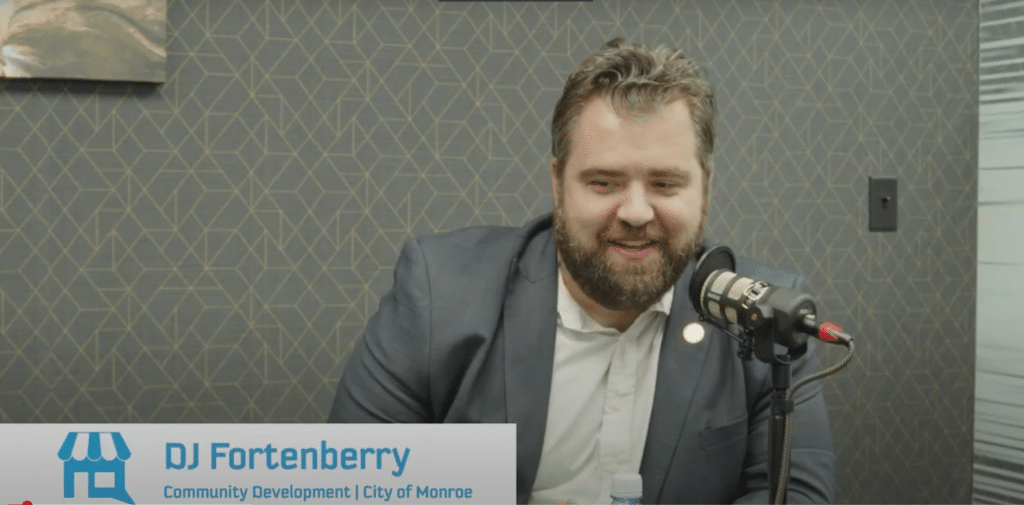In episode eight of Small Business Stories, DJ Fortenberry, Economic Development Specialist for the City of Monroe, sat down with the Monroe Chamber of Commerce and Louisiana Catalyst to talk about the city’s evolving future. A ULM baseball alum turned small business owner and city leader, Fortenberry has become a driving force behind community growth and economic revitalization efforts across Monroe.
Building a Business-Friendly Future
Now in his 19th year as a Monroe resident, Fortenberry helps guide new business development, infrastructure planning, and investment strategies. His job spans everything from helping developers navigate zoning and permitting to mapping out opportunities for retail and industrial growth.
“If someone calls City Hall needing help, we don’t pass it on—we do the job,” Fortenberry said. “We want to make Monroe easy to do business in.”
Fortenberry works closely with developers, identifying underused property and promoting strategic areas for growth—especially in downtown Monroe, where infrastructure is already in place. “Redeveloping downtown makes sense because utilities are there. It’s also where our community heart beats strongest.”
Downtown Revitalization and the Power of TIFs
One major development tool Fortenberry highlighted is the Tax Increment Financing (TIF) district established to empower the Downtown Economic Development District (DED). With funding now in place, the DED can self-invest in projects like the upcoming $4.5 million marina, lighting and sidewalk improvements, and accessibility upgrades.
Restaurants, entertainment venues, and even medical facilities contribute to a strong sales tax base downtown, creating a financial engine for long-term revitalization.
A New Era with Amtrak and Remote Work
One of Monroe’s most exciting upcoming developments is the introduction of an Amtrak passenger stop, which will be located downtown. Trains are expected to run east and west twice daily within four years.
“It’s a game changer,” said Fortenberry. “It boosts tourism and helps us attract remote workers who want Monroe’s affordability with big-city access.”
With work-from-home options growing, the city is focusing on quality-of-life improvements to encourage professionals to stay in the region.
Technology and Transparency with MyGov
The city is also modernizing its systems, including implementing MyGov, an online portal for permitting and inspections. While the transition has presented learning curves, especially for long-time developers, Fortenberry says it adds vital transparency and efficiency.
“MyGov puts the power back into the developers’ hands,” he explained. “It helps everyone track where a project stands and speeds things up.”
Still, one of Monroe’s biggest permitting challenges remains staffing. Fortenberry issued a call for plumbing and electrical inspectors, noting the city is actively seeking qualified applicants.
Medical IRT: Serving and Training the Community
Fortenberry also previewed a massive medical initiative coming this August: the Medical Innovative Readiness Training (IRT), hosted in partnership with the U.S. military and Delta Regional Authority.
From August 1–14, residents can receive free healthcare services including vision, dental, mental health, and pharmacy support at the Monroe Civic Center and West Monroe Convention Center. The goal? Treat over 6,000 patients while simultaneously training active and reserve military personnel for emergency response.
“This isn’t just about care—it’s a community-wide training opportunity,” said Fortenberry.
Sources

